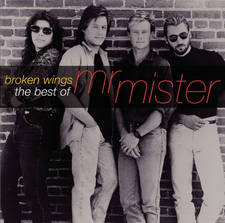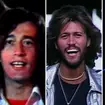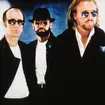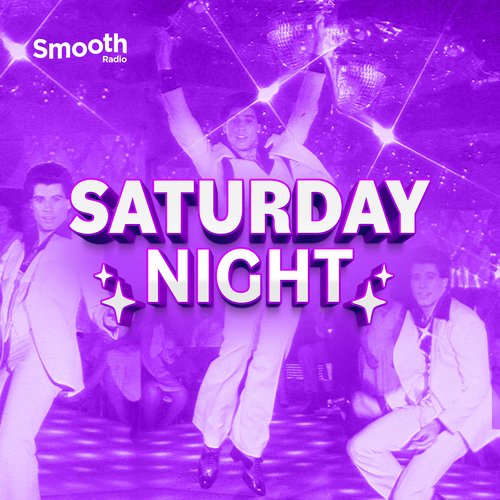The heartbreaking song the Bee Gees wrote in tribute to their late brother Andy Gibb
1 July 2024, 16:00

Listen to this article
It was an unimaginable loss.
On 10th March 1988, the Bee Gees had to contend with the news that their little brother, Andy Gibb, had died. He was merely 30 years old.
A pop star in his own right, the Gibbs' youngest family member had well-documented issues with addiction and drug abuse throughout his life.
Though his problems had in many ways curtailed his career, with the hits drying up along with personal finances and confidence.
Sadly, he couldn't kick his habit, and began drinking heavily days before his death, acting frequently erratic and unpredictable, telling his mum Barbara that "I might as well be dead".
- Andy Gibb: Remembering the life and career of the Bee Gees' younger brother
- Relive Andy Gibb, ABBA and Olivia Newton-John's incredible 'jam session' from 1978
- How many kids do the Bee Gees have, and who are they?
- Listen to the Bee Gees’ incredible cover of The Beatles classic for forgotten movie
Suffering from chest pains, he was kept overnight in hospital, but was tragically pronounced dead after slumping into unconsciousness whilst talking to the doctor. His heart failed.
Robin Gibb - who was in the UK too at that time - had to break the news to his brothers Barry and Maurice who were in Miami.
"That has to be the saddest, most desperate moment of my life," Robin later recalled.
Brought together by their devastation, the Bee Gees would pen a heartbreaking song in tribute to their late brother: 'Wish You Were Here'.

The tragedy happened at a time when the Bee Gees' were riding high again, finding chart success after nearly a decade in the doldrums.
'You Win Again' returned to the top of the charts in the UK and Australia, with the Gibb brothers writing for their next album, One, which would eventually be released in 1989.
The intention for that album, according to Maurice, was to bring in Andy to the group to become the fourth Bee Gee, something their younger brother had always dreamt of.
But sadly it wasn't to be. Robin believed Andy "had developed a fear of life, almost driving himself to oblivion".
Wracked with guilt about the loss of their brother, the Bee Gees didn't know what else to do other than get back into the studio.
"The week after, we thought maybe if we get back to work we can get re-centred," Maurice recalled.
"I was playing the strings [on keyboards] and it was very beautiful. Barry and Robin just started crying, and I just started crying. I said 'I can't play anymore'. We went home."

Wish You Were Here
They did begin writing together successfully - the brothers contributed 'Shape Of Things To Come' for the 1988 Summer Olympics Album.
But quickly after that, an outpouring of emotion came when they penned 'Wish You Were Here', with their late brother Andy in the forefront of their minds.
The song paints a picture of someone trying to cope with a great loss by living through their memories. It was clear that Barry, Robin, and Maurice were suffering greatly.
"A summer song keeps playing in my brain / And so I awake in somebody else's dreams" Barry sings delicately and mournfully.
The recurring mantra of "I wish you were here" serves as a powerful refrain, emphasising the emptiness they all felt without Andy in their lives.
Away from the Bee Gees, eldest brother Barry remained philosophical about the devastating loss of Andy, saying: "They say it causes soul growth when you lose somebody."
"Before, you don't look at the metaphysical side of life much at all. After, you start looking at everything like that."

- Watch Barry Gibb serenade his beloved wife Linda with tender rendition of 'Words'
- Bee Gees: How three 'strange' brothers didn’t 'fit in' but went on to define an era of pop music
- 10 incredible cover versions of Bee Gees songs
- Barry Gibb credits Eric Clapton for changing the Bee Gees' fortunes during the 1970s

After that, the Bee Gees - who were renowned for being workaholics - took six months off to regather their thoughts and deal with their grief.
From then onwards the band took their foot off the gas, and prioritised their relationship as brothers rather than bandmates.
"In many ways, I think we've all refused to accept he's gone for good," Maurice admitted some years later.
"His death has definitely brought the rest of the family closer together. We are united in our devastation."





















